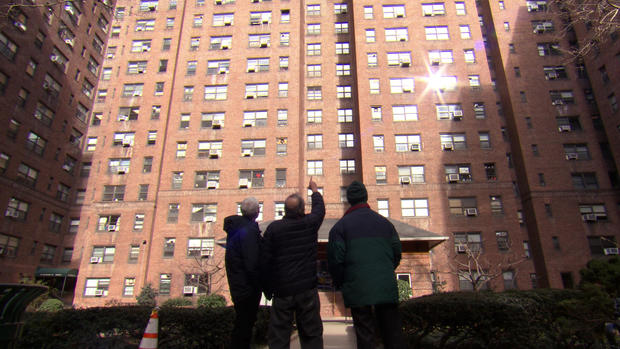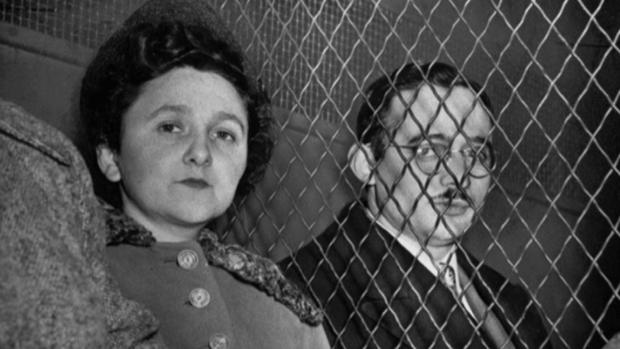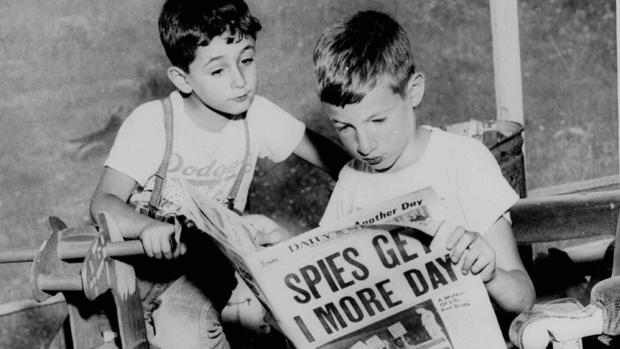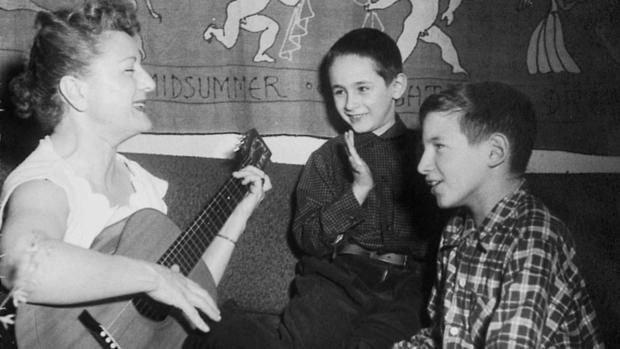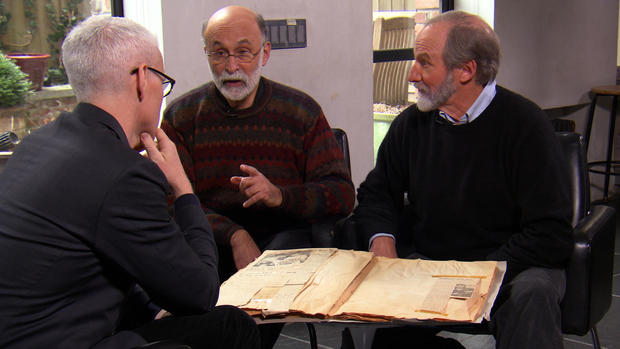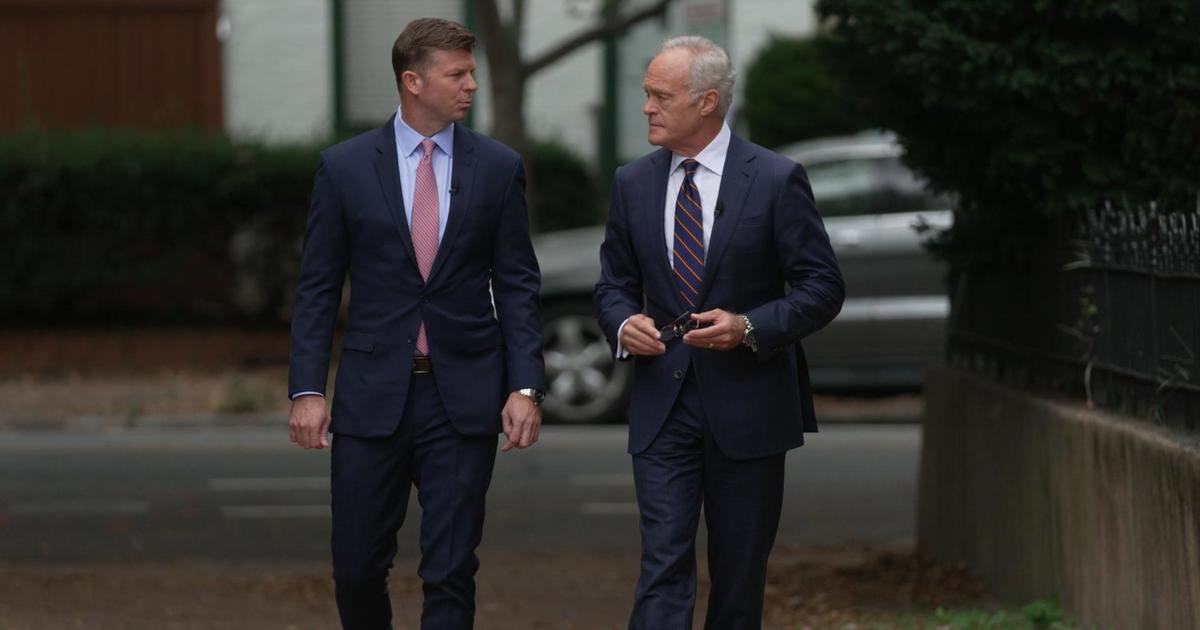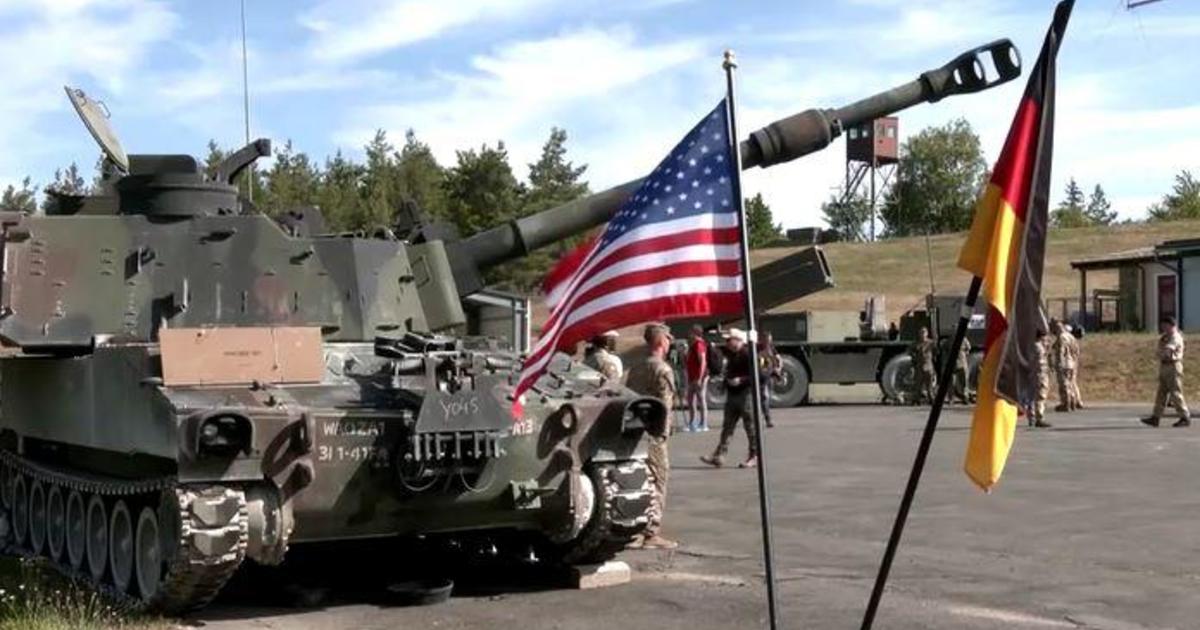The Rosenberg boys: The Cold War's most famous orphans
On New York City's Lower East Side, Knickerbocker Village sits between the Manhattan and Brooklyn Bridges. On the 11th floor of 10 Monroe St., a Cold War drama unfolded in the apartment at the end of the hall.
Michael Meeropol remembers it clearly. It was July 1950, and he was 7 years old. He was listening to "The Lone Ranger" on the radio when he heard the knock on the door. He assumed the men who filled his family's apartment were friends of his father's, but when his mother yelled "I want a lawyer," he knew something was strange. When his father left that day, he never came back.
That's because the men were F.B.I. agents who arrested his father, Julius Rosenberg, accusing him of running a spy ring to help the Soviet Union make an atomic bomb. Julius' wife, Ethel, was arrested about a month later, and three years later, the couple was convicted and executed. Never before had a husband and wife been sentenced to death, and the dramatic execution made Michael and his brother, Robert, orphans.
This week on 60 Minutes, correspondent Anderson Cooper speaks with Michael and Robert Meeropol about what it was like to be the children of accused Communist spies during the McCarthy era. The story also sheds new light on the case; the former Rosenberg boys are now working to have their mother exonerated.
"It's a remarkable American story," 60 Minutes producer Andy Court tells Overtime. "But a lot of people have not the slightest idea what really happened. And a lot of people have misconceptions, which is really what drew us to this story."
Growing up as the children of Julius and Ethel Rosenberg was difficult for Michael and Robert. Once their parents were arrested and held in Sing Sing prison, family members feared taking the boys in, so they wound up in a children's shelter.
"Being the Rosenbergs' children in 1950 was almost like being Osama bin Laden's kids here after 9/11," Robert Meeropol says.
Following their parents' execution in 1953, their lives changed again when they met Anne and Abel Meeropol, teachers who were supporters of the Rosenbergs. The couple took the brothers into their home and adopted them, giving them a new last name.
"They saved our lives," Michael Meeropol says of his adopted parents.
As adults, the Meeropol brothers were determined to uncover new information in their parents' case. What they and independent historians have uncovered over the years implicates their father as a spy but, in their view, exonerates their mother.
In 2008, the Meeropol brothers acknowledged their father's guilt. There's now plenty of evidence showing that Julius Rosenberg's spy network stole important information and recruited the informant David Greenglass, Ethel Rosenberg's brother.
One of the chief witnesses in the case, Greenglass has since admitted that he lied about his sister's role in the operation.
In a rare 2001 interview seen in the clip above, Greenglass tells 60 Minutes that prosecutors pressured him to testify against Julius and Ethel Rosenberg, and in exchange, he got a reduced sentence. His wife never spent a day in prison.
"That's what I told the FBI," says Greenglass. "I said, 'If you indict my wife, you can forget it. I'll never say a word about anybody.'"
"In the case of my mother, she really is collateral damage." Michael Meeropol
He says it was, essentially, his choice. So Greenglass turned on his sister to save his wife. "I would not sacrifice my wife and my children for my sister," he says. "How do you like that?"
When 60 Minutes interviewed Greenglass in 2001, the Meeropol brothers declined to be interviewed, saying they would not appear on the same broadcast as their uncle. Today they argue that prosecutors framed their mother by inventing evidence that she typed up Greenglass' notes on the atomic bomb.
There's also evidence to suggest that her capital sentence was meant to intimidate Ethel Rosenberg to give up information.
"There seems to be general agreement that she was executed because she refused to talk," Court explains, "that the death penalty was used as an investigative tool, in a sense, to get her to crack. And then when she didn't, called their buff, they killed her."
Michael Meeropol argues that his mother didn't have to die. "In the case of my mother, she really is collateral damage," he says.
This past fall, the brothers were seeking their mother's exoneration and called on President Obama to acknowledge that Ethel Rosenberg was killed for a crime she didn't commit. But President Obama did not grant her the exoneration they requested before he left office.
"She was taken away from us," Robert Meeropol says. "That's as personal as it can get. But the fact that the government facilitated the invention of evidence in order to convict someone of a capital crime—that is something that should concern everybody."
The video above was originally published on Oct. 16, 2016. It was produced and edited by Lisa Orlando.
